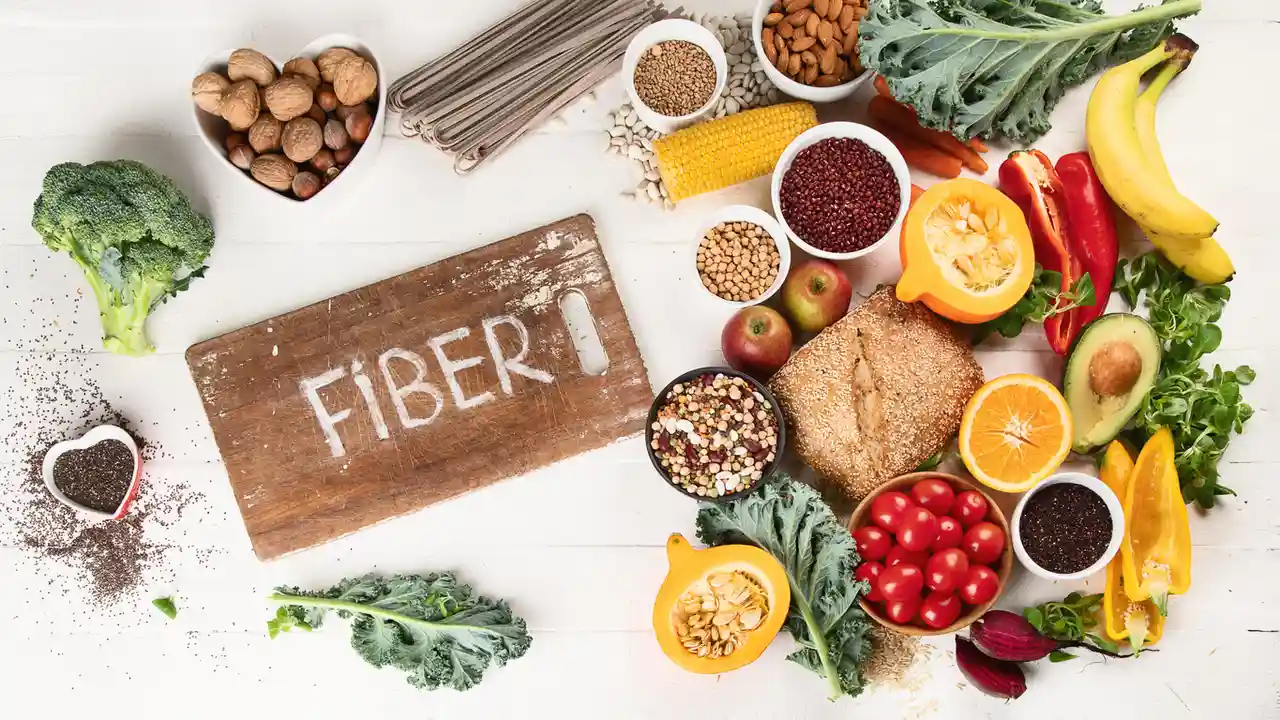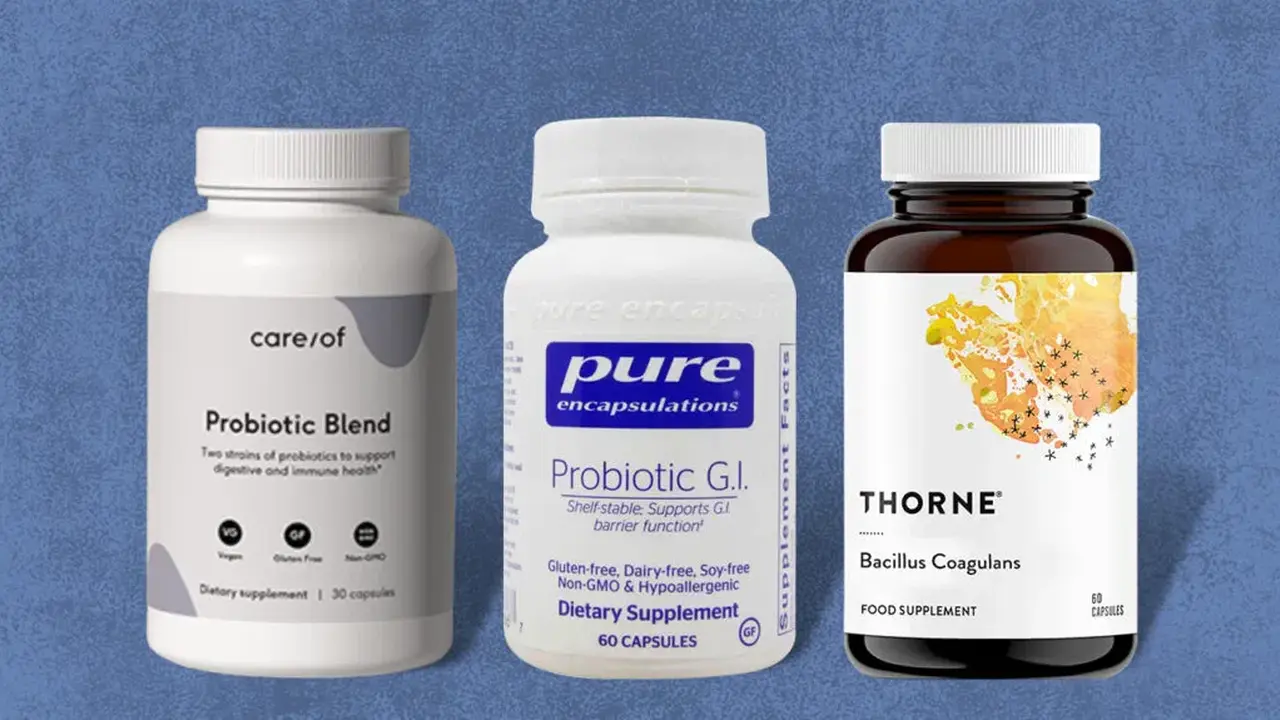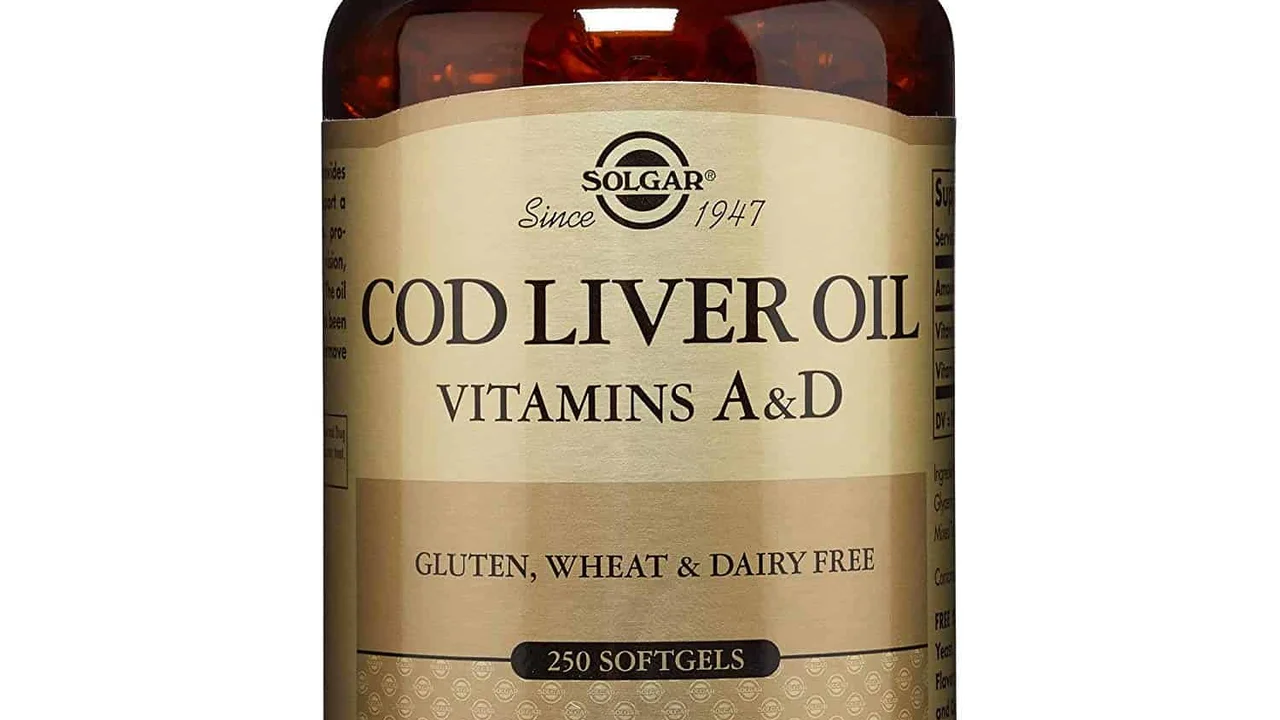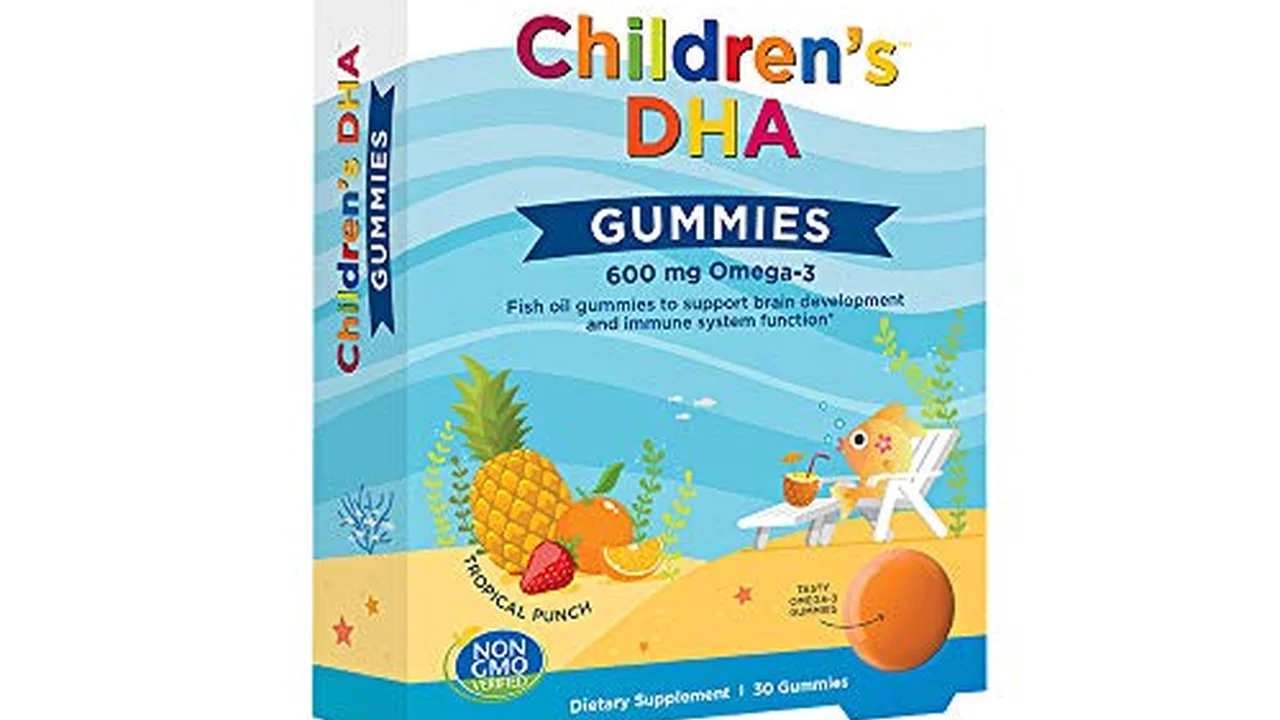Fiber Supplements: 5 Types and Their Benefits

Uncover the benefits of fiber and its importance for digestive health and regularity. Explore different types of fiber supplements and their specific uses. Find the right fiber supplement to support your gut health.
Understanding Fiber The Key to Digestive Health
Okay, let's talk fiber. We all know we *should* be eating more of it, but what exactly is it, and why is it so important? Fiber is essentially the indigestible part of plant-based foods. It passes through your digestive system relatively intact, and that's a *good* thing. It's like a little scrub brush for your insides, keeping things moving and preventing constipation. But fiber does so much more than just keep you regular.
Think of fiber as food for your gut bacteria. These beneficial bacteria thrive on fiber, and in turn, they produce short-chain fatty acids (SCFAs) like butyrate, which have a whole host of health benefits, including reducing inflammation and improving gut barrier function. A healthy gut microbiome is essential for overall health, influencing everything from your immune system to your mood.
Most Americans don't get nearly enough fiber. The recommended daily intake is around 25-30 grams, but the average person only consumes about half that. That's where fiber supplements come in. They can be a convenient way to boost your fiber intake and reap the rewards.
Types of Fiber Supplements Choosing the Right One for You
Not all fiber supplements are created equal. They come in different forms, each with its own unique properties and benefits. Let's break down the most common types:
Psyllium Husk The King of Fiber
Psyllium husk is a soluble fiber derived from the seeds of the Plantago ovata plant. It's highly effective at promoting regularity and can help lower cholesterol levels. It works by absorbing water in the gut, forming a bulky gel that helps soften stools and make them easier to pass.
Benefits:
- Promotes regularity and prevents constipation
- Lowers cholesterol levels
- May help control blood sugar levels
- Can promote satiety and weight management
Considerations: Psyllium husk can cause gas and bloating, especially when first starting. It's important to start with a small dose and gradually increase it over time. Also, be sure to drink plenty of water when taking psyllium husk, as it can cause dehydration if you don't.
Product Recommendation: Metamucil. It's a classic for a reason. Available in various flavors and forms (powder, capsules), it's a reliable source of psyllium husk. A standard container (around 114 doses) typically costs between $15 and $25.
Methylcellulose A Gentle Option
Methylcellulose is another soluble fiber that works similarly to psyllium husk. However, it's less likely to cause gas and bloating, making it a good option for people with sensitive stomachs. It also doesn't ferment in the gut, which further reduces the risk of gas.
Benefits:
- Promotes regularity and prevents constipation
- Gentle on the stomach and less likely to cause gas
- Can help control blood sugar levels
Considerations: Methylcellulose may not be as effective as psyllium husk at lowering cholesterol levels.
Product Recommendation: Citrucel. This is a well-known brand of methylcellulose fiber. Like Metamucil, it comes in powder and capsule forms. Expect to pay roughly $18-$28 for a container with approximately 72 doses.
Wheat Dextrin A Convenient Choice
Wheat dextrin is a soluble fiber derived from wheat starch. It dissolves completely in water and has a mild taste, making it easy to mix into drinks and foods. It's a good option for people who don't like the texture of other fiber supplements.
Benefits:
- Promotes regularity and prevents constipation
- Easy to mix into drinks and foods
- Mild taste
Considerations: Wheat dextrin is not gluten-free, so it's not suitable for people with celiac disease or gluten sensitivity. It may also be less effective than other fiber supplements at lowering cholesterol levels.
Product Recommendation: Benefiber. This is a popular brand of wheat dextrin. It's available in powder form and can be easily added to water, coffee, or other beverages. A container with about 62 servings costs around $12-$20.
Inulin A Prebiotic Powerhouse
Inulin is a soluble fiber that's also a prebiotic, meaning it feeds the beneficial bacteria in your gut. It's found naturally in foods like onions, garlic, and asparagus. Inulin is a good option for people who want to improve their gut health in addition to increasing their fiber intake.
Benefits:
- Promotes regularity and prevents constipation
- Feeds beneficial gut bacteria (prebiotic effect)
- May help improve mineral absorption
Considerations: Inulin can cause gas and bloating, especially when first starting. It's important to start with a small dose and gradually increase it over time.
Product Recommendation: NOW Foods Inulin Powder. This is a pure inulin powder that can be easily added to smoothies, yogurt, or other foods. A 1-pound bag typically costs between $10 and $18.
Guar Gum A Versatile Option
Guar gum is a soluble fiber derived from the guar bean. It's often used as a thickening agent in food products. Guar gum can help lower cholesterol levels and control blood sugar levels. It's also being investigated for potential benefits in weight management.
Benefits:
- May help lower cholesterol levels
- Can help control blood sugar levels
- May promote satiety and weight management
Considerations: Guar gum can cause gas and bloating, especially when first starting. It's important to start with a small dose and gradually increase it over time. It can also interfere with the absorption of certain medications, so check with your doctor if you're taking any medications regularly.
Product Recommendation: Heather's Tummy Fiber Organic Acacia Senegal. While technically Acacia Senegal, it acts similarly to guar gum and is gentle on the stomach. A container usually costs around $25-$35.
Fiber Supplements Usage Scenarios When to Take Them
So, when should you consider taking a fiber supplement? Here are a few common scenarios:
- Constipation Relief: This is the most common reason people take fiber supplements. If you're experiencing infrequent bowel movements or difficulty passing stools, a fiber supplement can help get things moving.
- Irritable Bowel Syndrome (IBS): Some people with IBS find that fiber supplements can help manage their symptoms, particularly constipation. However, it's important to talk to your doctor before taking a fiber supplement for IBS, as it can sometimes worsen symptoms in certain individuals.
- High Cholesterol: Soluble fiber supplements like psyllium husk and guar gum can help lower cholesterol levels by binding to cholesterol in the gut and preventing it from being absorbed into the bloodstream.
- Weight Management: Fiber can help you feel fuller for longer, which can aid in weight loss or maintenance. It also slows down the absorption of sugar into the bloodstream, which can help prevent blood sugar spikes and crashes.
- Improving Gut Health: Prebiotic fiber supplements like inulin can help nourish your gut bacteria and promote a healthy gut microbiome.
- Dietary Deficiency: If your diet is lacking in fruits, vegetables, and whole grains, you may not be getting enough fiber. A fiber supplement can help bridge the gap.
Comparing Fiber Supplements Which One is Best for You?
Choosing the right fiber supplement depends on your individual needs and preferences. Here's a quick comparison table to help you decide:
| Fiber Type | Benefits | Considerations | Best For |
|---|---|---|---|
| Psyllium Husk | Promotes regularity, lowers cholesterol | Can cause gas and bloating | General constipation relief, lowering cholesterol |
| Methylcellulose | Promotes regularity, gentle on the stomach | May not be as effective at lowering cholesterol | People with sensitive stomachs |
| Wheat Dextrin | Promotes regularity, easy to mix | Not gluten-free, may be less effective at lowering cholesterol | People who prefer a tasteless and easy-to-mix option |
| Inulin | Promotes regularity, prebiotic effect | Can cause gas and bloating | Improving gut health, prebiotic support |
| Guar Gum/Acacia Senegal | May help lower cholesterol, control blood sugar, may help with weight management | Can cause gas and bloating, may interfere with medication absorption | Those also looking for potential blood sugar or cholesterol benefits |
Dosage and Safety Tips for Fiber Supplements
It's important to start with a low dose of fiber and gradually increase it over time to avoid gas and bloating. Follow the dosage instructions on the product label. Drink plenty of water when taking fiber supplements to prevent dehydration. If you're taking any medications, talk to your doctor before taking a fiber supplement, as it can interfere with the absorption of some medications.
Fiber supplements are generally safe for most people. However, some people may experience side effects like gas, bloating, constipation, or diarrhea. If you experience any of these side effects, reduce your dose or stop taking the supplement. If you have any underlying health conditions, talk to your doctor before taking a fiber supplement.
Beyond Supplements A Fiber Rich Diet
While fiber supplements can be helpful, they shouldn't be a replacement for a healthy diet rich in fiber-rich foods. Aim to include plenty of fruits, vegetables, whole grains, and legumes in your diet. These foods are not only rich in fiber but also packed with other essential nutrients.
Examples of fiber-rich foods include:
- Fruits: Apples, berries, bananas, pears
- Vegetables: Broccoli, Brussels sprouts, carrots, spinach
- Whole Grains: Oats, brown rice, quinoa, whole-wheat bread
- Legumes: Beans, lentils, chickpeas
- Nuts and Seeds: Almonds, chia seeds, flaxseeds
By incorporating these foods into your daily meals, you can naturally increase your fiber intake and support your digestive health. Remember to gradually increase your fiber intake to avoid digestive discomfort.
:max_bytes(150000):strip_icc()/277019-baked-pork-chops-with-cream-of-mushroom-soup-DDMFS-beauty-4x3-BG-7505-5762b731cf30447d9cbbbbbf387beafa.jpg)






